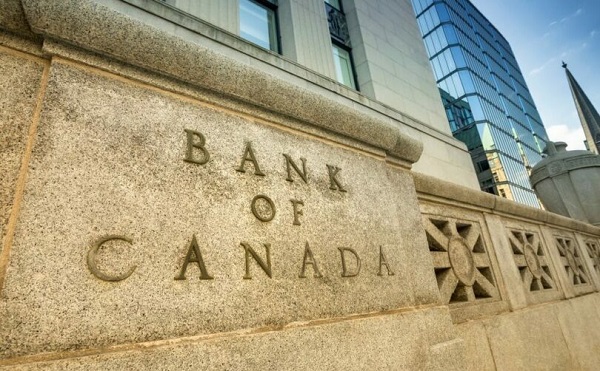CBDC Central Bank Digital Currency
Trudeau signs partnership with EU to promote digital IDs, counter ‘disinformation’

From LifeSiteNews
Many experts have warned that a digital ID system could lead to the type of tyranny seen in China under its communist regime’s social credit system
Prime Minister Justin Trudeau has announced a digital agreement with the European Union (EU) to advance the implementation of a digital identification system and to counter online “disinformation.”
On November 24, Trudeau released the official terms of the Canada-EU Digital Partnership which aims to create digital credentials for Canadians, counter “disinformation,” and cooperate on artificial intelligence (AI).
“When Canada and Europe work together, we create good, middle-class jobs, we grow strong economies, and we make progress in the fight against climate change,” Trudeau stated in a statement from his office.
The details of the deal were discussed with European Union (EU) Commission President Ursula von der Leyen and EU Council President Charles Michel at the Canada-European Union (EU) Leaders’ Summit in St. John’s, Newfoundland.
Under the agreement, both Canada and the EU will “work jointly in building on respective bilateral and multilateral cooperation fora such as the G7, G20, OECD, UN and WTO.”
The Group of 20 (G20), the 19 most influential countries on earth plus the EU, have endorsed several proposals to explore development of a “digital public infrastructure,” including digital identification systems and potentially a centralized digital currency.
Trudeau has repeatedly shown his loyalty to both EU and United Nation (UN) goals, apparently placing them above the well-being of Canadians.
The Trudeau government’s current environmental goals, as an example, are in lockstep with the United Nations’ “2030 Agenda for Sustainable Development” and include phasing out coal-fired power plants, reducing fertilizer usage, and curbing natural gas use over the coming decades.
The reduction and eventual elimination of the use of so-called “fossil-fuels” and a transition to unreliable “green” energy has also been pushed by the World Economic Forum (WEF) – the globalist group behind the socialist “Great Reset” agenda – of which Trudeau and some of his cabinet are involved.
The Canada-EU deal also states that, “Both sides could cooperate in international standard setting to support the development of human-centric digital identity and digital credentials.”
The promotion of digital ID comes as many have warned that it could lead to a social credit system such as that used in Communist China.
Canadians may have already seen the potential dangers of a digital ID system and currency when, during the 2022 Freedom Convoy, Trudeau’s government enacted the Emergency Act (EA) to shut down the popular movement.
Under the EA, Deputy Prime Minister Chrystia Freeland froze the bank accounts of Canadians who donated to the 2022 Freedom Convoy, which protested vaccine mandates and COVID regulations.
Trudeau revoked the EA a few days later after the protesters had been cleared out. At the time, seven of Canada’s 10 provinces opposed the use of the EA by Trudeau.
As articulated by LifeSiteNews correspondent David James, this type of financial crackdown is precisely why many fear the move toward an entirely digital, cashless society.
“What Freeland has outlined is an unprecedented incursion into financial activity that is designed to lock the people whom the government deems to be undesirable out of the system entirely,” James wrote in an op-ed.
“It confirms what many have been warning about for some time: that one of the core elements of the so-called Great Reset is to enslave populations by surveilling and controlling their transactions,” he continued. “China has already implemented its version of digital tyranny with its Social Credit System, which it will combine with its Central Bank Digital Currency [CBDC]. Now Trudeau and Freeland have drawn back the curtain in Canada to reveal their version of digital despotism.”
Business
President Trump Signs Executive Order Banning CBDCs

The executive order marks a decisive pivot in US digital asset policy.
|
|
Business
Bank of Canada admits ‘significant’ number of citizens would resist digital dollar

From LifeSiteNews
A significant number’ of Canadians are suspicious of government overreach and would resist any measures by the government or central bank to create digital forms of official money.
A Bank of Canada study has found that Canadians are very wary of a government-backed digital currency, concluding that “significant number” of citizens would resist the implementation of such a system.
The study, conducted by the Bank of Canada, found that a “significant number” of Canadians are suspicious of government overreach, and would resist any measures by the government or central bank to create digital forms of official money.
According to results from the BOC’s report titled The Consumer Value Proposition For A Hypothetical Digital Canadian Dollar, “cash remains an important method of payment” for Canadians and “[c]ertain groups may strongly resist a digital dollar if they conflate its launch with the end of cash issuance.”
The BOC noted that not only would a “significant number” of Canadians “reject” digital money, but that for some “mindset segments, their lack of interest in a hypothetical digital Canadian dollar was heavily influenced by perceptions of government overreach.”
As reported by LifeSiteNews in September, the BOC has already said that plans to create a digital “dollar,” also known as a central bank digital currency (CBDC), have been shelved.
The shelving came after the BOC had already forged ahead and filed a trademark for a digital currency, as LifeSiteNews previously reported.
Officials from Canada’s central bank said that a digital currency, or electronic “loonie,” will no longer be considered after years of investigating bringing one to market.
However, that does not mean the BOC is still not researching or exploring other options when it comes to digital money. As noted by researchers, despite there being some “interest” in a “hypothetical digital Canadian dollar,” that “interest does not necessarily translate to adoption.”
“Most participants felt well served by current means of payment,” noted the study, adding, “Individuals who support the issuance of a hypothetical digital Canadian dollar did not imagine themselves using it regularly.”
Those most enthusiastic about a government-backed version of Bitcoin were teenagers and young adults. Those older remained especially skeptical.
“They were skeptical of the need for this new form of money and of its reliability,” read the report, which also noted, “They did not trust that concepts were secure or that their personal information would be kept private.”
Given the results from the report, the bank concluded that “[b]road early adoption” of a digital dollar “is unlikely given that available payment methods meet the needs of most users.”
“Financially vulnerable segments often have the most to gain from this payment method but are most resistant to adoption. Important considerations for appeal and adoption potential include universal merchant acceptance, low costs, easy access, simplified online payments, shared payment features, budgeting tools and customizable security and privacy settings,” it noted.
Digital currencies have been touted as the future by some government officials, but, as LifeSiteNews has reported before, many experts warn that such technology would restrict freedom and could be used as a “control tool” against citizens, similar to China’s pervasive social credit system.
Most Canadians do not want a digital dollar, as previously reported by LifeSiteNews. A public survey launched by the BOC to gauge Canadians’ taste for a digital dollar revealed that an overwhelming majority of citizens want to “leave cash alone” and not proceed with a digital iteration of the national currency.
The BOC last August admitted that the creation of a CBDC is not even necessary, as many people rely on cash to pay for things. The bank concluded that the introduction of a digital currency would only be feasible if consumers demanded its release.
In August, LifeSiteNews also reported that the Conservative Party is looking to gather support for a bill that would outright ban the federal government from ever creating a digital currency and make it so that cash is kept as the preferred means of settling debts.
Conservative leader Pierre Poilievre promised that if he is elected prime minister, he would stop any implementation of a “digital currency” or a compulsory “digital ID” system.
Prominent opponents of CBDCs have been strongly advocating that citizens use cash whenever possible and boycott businesses that do not accept cash payments as a means of slowing down the imposition of CBDCs.
-

 International22 hours ago
International22 hours agoGeorgia county admits illegally certifying 315k ballots in 2020 presidential election
-

 Business2 days ago
Business2 days agoICYMI: Largest fraud in US history? Independent Journalist visits numerous daycare centres with no children, revealing massive scam
-

 Alberta2 days ago
Alberta2 days agoAlberta project would be “the biggest carbon capture and storage project in the world”
-

 Energy2 days ago
Energy2 days agoCanada’s debate on energy levelled up in 2025
-

 Haultain Research1 day ago
Haultain Research1 day agoSweden Fixed What Canada Won’t Even Name
-

 Business23 hours ago
Business23 hours agoWhat Do Loyalty Rewards Programs Cost Us?
-

 Business2 days ago
Business2 days agoSocialism vs. Capitalism
-

 Energy2 days ago
Energy2 days agoNew Poll Shows Ontarians See Oil & Gas as Key to Jobs, Economy, and Trade





